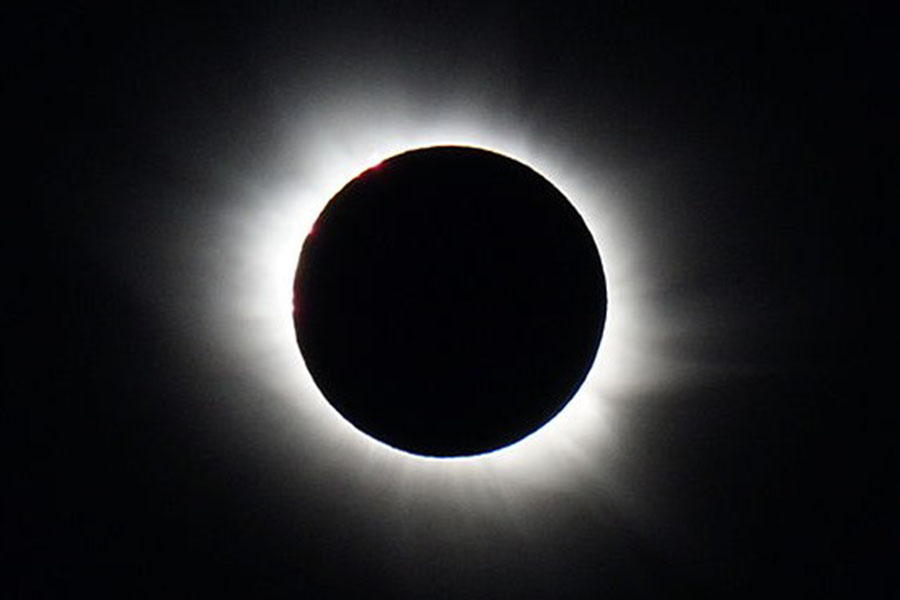Rare Solar Eclipse Attracts Thousands
For the first time since 1979, a solar eclipse is visible from the United States, bringing thousands of tourists to the local area.
PHOTO | WikiCommons
A total solar eclipse that took place in Longyearbyen, Spitsbergen
A rare solar eclipse will be visible locally, causing excitement for anyone who lives nearby Aug. 21. With so many people making plans to view the event, the administration made the decision to cancel school for the day.
What makes this upcoming eclipse special is that it will be a total solar eclipse. According to the National Aeronautics and Space Administration (NASA), a total solar eclipse is when the moon completely covers the sun and the sun’s tenuous atmosphere is visible. With the sun being completely covered, complete darkness will set in for around two minutes in the middle of the day.
The viewing area of total eclipses is fairly small and they are only visible from select locations. The last time this kind of eclipse was visible from the United States was 38 years ago, making it a rare sight for many.
The path of totality spans across 14 states from Oregon to South Carolina and is 70 miles wide. Thousands of people are expected to travel to these locations to catch a glimpse of the eclipse. St. Joseph, Missouri, and the surrounding areas are in the path of totality. With it so close to home, High School Principal Natalie McDonough canceled school for students to have the opportunity to view the totality.
“The logistics of our campus not being in the best viewing area, combined with the modeling to our young women the importance of this scientific and academic event, had led us to the decision to close school on Aug. 21,” McDonough said in an email.
Special eclipse glasses have been made to protect people’s eyes for safe viewing, and NASA certified glasses can be purchased online. Fortunately, Sion will be sending home kits for the students.
“Our science department will provide viewing kits that will be sent home on Friday, including the special viewing glasses,” McDonough said.
No school doesn’t mean the eclipse will be overlooked in the classroom. The science department has plans to engage students leading up to the eclipse.
“I will be providing educational materials on the second day of school,” environmental science teacher Amy Vandenbrul said. “My students will be doing a differentiated project…designed to also pass along information about the eclipse to the rest of the student body and perhaps even the parent community. I really want my students to focus on some of the scientific studies that are coming from the eclipse and not just the basics of what the eclipse is.”
Some students are taking advantage of the day and traveling to view the eclipse in the totality zone.
“My family and I will be traveling to Plattsburg, Missouri, and camp out on our friend’s’ farm… I am excited to see the eclipse because I have never seen an eclipse before,” junior Keely Roudebush said.
And not just students are getting in on the eclipse action.
“When I learned that we will not be in school that day I contacted a friend up north to ensure we could use his property to view the eclipse. I have our eclipse glasses ready to go and am excited to get my kids excited about the event,” Vandenbrul said.



